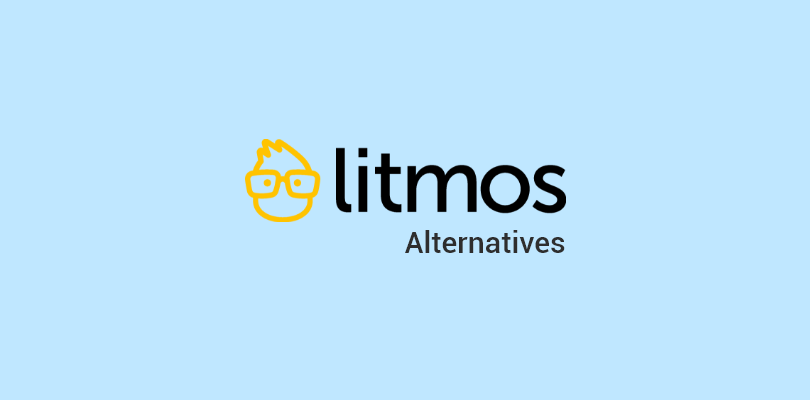Let Me Tell You Why I Built This LMS Requirements Checklist:
I’ve spent years working closely with training managers, HR leaders, and L&D teams, helping them plan, implement, and scale their LMS platforms. In all those conversations, one pattern kept coming up—teams often chose a system based on demos and feature lists without truly defining their requirements.
I’ve seen what happens when that step is skipped. Adoption struggles, admins get frustrated with clunky workflows, and reporting becomes a nightmare. And suddenly, the LMS that looked so good on paper becomes an expensive headache.
That’s why I created this LMS requirements checklist. It’s not just a list of features—it’s the framework I use to help a team evaluate or implement an LMS. It’s built on years of hands-on experience, honest client feedback, and hard-earned lessons from the field.
Who This Checklist is For:
Training Manager trying to get your first LMS approved
L&D leader scaling learning across a growing organization
HR manager balancing compliance with engagement
Corporate trainer or educator looking to make your content shine
…then you’ll find this checklist useful. I designed it to walk you through everything I now evaluate when I choose an LMS.
What Are the Main Categories of LMS Requirements?
When teams choose a learning platform without looking at the full picture, problems show up later. Maybe the LMS lacks key features, doesn’t scale well, or creates data security risks. Most of the time, this happens because they focus on surface-level features and miss what actually matters.
This LMS requirements checklist covers everything your platform needs to support real training outcomes. Instead of just listing features, it focuses on what your LMS must be able to do.
Here are the five main categories of LMS system requirements you should evaluate:
- Functional requirements – These cover the core features every platform needs to build, deliver, and track learning. If it can’t do this without workarounds, it’s missing the basic LMS requirements.
- Business requirements – These help you understand the true cost, scalability, and long-term value of the platform.
- Security requirements – These protect your data, support compliance, and prevent risks that could hurt your business.
- Technical requirements – These show how well the LMS fits into your existing systems and handles things like API, mobile access, and hosting.
- User experience requirements – Whether your LMS is easy to use, intuitive, and built for real adoption across roles
- Non-functional requirements – These cover accessibility, uptime, localization, and other factors that impact long-term success.
In the next sections, you’ll find a complete breakdown of these LMS requirements, along with examples and real-world insights to help you choose the right platform.
Which LMS Functional Requirements Matter Most?
Your LMS’s functional requirements are the core things it has to do to run your training smoothly. These basics show if the platform can create, deliver, and track courses properly without you having to find workarounds all the time. Any solid LMS checklist has to start with these must-have features.
1. Content and Course Management
To create and deliver training without tech headaches, your LMS needs an easy way to build courses fast, like drag-and-drop builders and pre-built templates & courses that save you from starting from scratch every time.
Plus, some platforms, like ProProfs, use AI to speed up course creation by suggesting layouts and content ideas, making the process smoother.
After that, support for standards like SCORM 1.2/2004 and xAPI becomes essential, especially if you’re working with authoring tools like Articulate, Captivate, or Adobe.
To accelerate course creation and maintain consistency, look for these capabilities:
- Drag-and-drop course builder with pre-built courses & templates that eliminate starting from scratch
- AI-powered course creation that creates courses with a single prompt
- Multimedia support for MP4, PDF, PowerPoint, and interactive content without conversion hassles
- Voice-over and captioning tools that ensure accessibility compliance from day one
- Version control and backup prevent content loss during updates and revisions
Custom branding and white-labeling capabilities become essential to maintaining brand consistency across all training touchpoints. This includes custom logos, color schemes, domain mapping, and fully branded learning portals that integrate seamlessly with your company website, critical for customer-facing training programs.
2. User Management and Role Assignment
Your system must support granular role-based access that reflects real organizational structures to efficiently assign training and manage permissions without administrative overhead. Basic enrollment tools won’t suffice when you need different access levels for administrators, instructors, managers, and learners.
To streamline user onboarding and group organization, prioritize these features:
- Bulk user import and automated HR system provisioning eliminating manual data entry for large teams
- Custom user fields tracking department, location, job role, and certification status for targeted training
- Dynamic group management organizing users by teams, departments, or custom criteria with automatic updates
- Self-enrollment with group codes allowing teams to join specific programs without admin intervention
To support blended learning environments effectively, classroom-level management becomes essential. The LMS should handle instructor assignments, room scheduling, and attendance tracking for in-person sessions combined with online modules.
3. Assessment and Progress Tracking
Assessment tools must extend beyond basic multiple-choice questions to accurately measure learning effectiveness and identify knowledge gaps. Your LMS should provide quiz randomization, time limits, and multiple-try options, ensuring a fair and comprehensive knowledge evaluation.
To create comprehensive and secure assessments, essential capabilities include:
- Diverse question types including true/false, matching, drag-and-drop, essay, and file upload options
- Question pools and randomization preventing cheating while maintaining assessment integrity
- Automated grading with detailed feedback reducing instructor workload while improving learning outcomes
- Proctoring integration for high-stakes certifications and compliance testing
To optimize training programs based on learner behavior, detailed progress tracking captures data beyond simple completion rates. The system should monitor time spent per module, login frequency, assessment attempts, and learning path progression, helping identify at-risk learners before they fail.
Certificate management with automated renewal becomes crucial to maintaining compliance without manual tracking. The LMS should generate certificates automatically upon completion, track expiration dates, and send renewal notifications before credentials lapse.
4. Reporting and Analytics
To show training ROI and keep improving your programs, strong reporting features are key to long-term LMS success. Your platform should offer real-time dashboards for admins, managers, and learners, plus detailed reports that cover compliance and performance insights.
To track progress and identify improvement opportunities, core reporting requirements include:
- Individual and group completion tracking showing progress across departments and courses
- Assessment performance analytics identifying knowledge gaps and content effectiveness
- Engagement metrics including login frequency and time-on-task for optimization insights
- Compliance audit documentation with detailed user activity logs for regulatory requirements
“The biggest surprise was how limited the reporting was in the base package. We needed detailed compliance reports for our regulated industry, but that required a premium add-on.” This common customer experience highlights the importance of understanding reporting limitations before purchase.
To create custom insights without vendor dependency, look for drag-and-drop report builders, scheduled automated delivery, and export options for external analysis.
Your LMS should enable course creation, user management, assessment delivery, and progress tracking without requiring constant IT support or manual workarounds.
Watch How You Analyze Training Reports:
What Business Requirements Should Your LMS Meet?
Business requirements determine whether your LMS investment delivers long-term value and supports organizational growth. These strategic LMS system requirements often matter more than feature counts when measuring platform success and should be prioritized in every LMS requirements checklist.
1. Cost-Effectiveness and Transparent Pricing
To avoid budget overruns and hidden costs, the LMS pricing structure extends far beyond advertised subscription fees. Smart buyers evaluate the total cost of ownership, including implementation, training, ongoing support, and charges that emerge after deployment.
To make informed budget decisions, evaluate these cost factors:
- Per-user pricing with clear overage policies preventing surprise charges during growth periods
- Feature tier transparency showing what’s included versus premium add-ons requiring additional payment
- Implementation costs including data migration, setup fees, and required training sessions
- Storage and bandwidth charges especially important for video-heavy training programs
“The base price looked competitive, but we hit limits quickly. User overages, advanced reporting, and API access all cost extra. Our total cost doubled in year two.” This feedback from community research I conducted shows why upfront cost transparency matters.
Your LMS licensing should allow you to adjust user numbers annually, offer seasonal pricing for temporary staff, and add or remove users without locking you into long contracts. This will allow you to handle changes in your workforce without extra costs.
2. Scalability and Growth Support
To prevent expensive platform switches as your organization grows, your LMS needs to scale smoothly across user numbers, content size, and system complexity. Scalability testing should check limits on how many users can be active at once, storage capacity, and how the system performs during peak times.
User scalability means the LMS keeps response times steady as more people log in, can handle multiple assessments happening at once during company-wide training, and supports teams spread across different time zones without slowing down.
Content scalability means the system can manage large video files, maintain fast search across thousands of courses, and deliver content reliably no matter how big the library gets.
3. Integration with Existing Systems
How deeply your LMS integrates with other systems determines whether you can avoid double data entry and streamline operations. High-quality APIs and clear documentation can make the difference between reducing administrative work and creating more headaches.
To connect seamlessly with your technology stack, essential integrations include:
- HR system synchronization with BambooHR, Workday, ADP, and Spine HRAS for automatic user updates
- Single Sign-On (SSO) supporting SAML, OAuth, and Active Directory for seamless access
- Communication platform integration with Zoom, Teams, Slack for coordinated learning experiences
- E-commerce and billing integration with Stripe, PayPal, and accounting systems for paid training programs
To go beyond basic LMS features, your platform should work smoothly with third-party tools like content authoring software, video hosting services, event management systems such as Eventbrite, and CRM platforms, especially for training programs aimed at customers.
Your LMS should deliver predictable costs, scale with growth, and integrate seamlessly with existing systems to maximize operational efficiency.
Watch: How to Implement an LMS in Your Organization
What Security Requirements Should You Look for in an LMS?
Security requirements protect sensitive training data and ensure regulatory compliance. When neglected, these critical LMS requirements can result in significant financial penalties, regulatory sanctions, and reputational damage. Every basic LMS requirements assessment must prioritize security from the initial evaluation phase.
1. User Authentication and Access Control
Strong authentication is no longer optional, it’s essential to keep unauthorized users out while making access easy for legitimate users. Multi-factor authentication (MFA) has become a must-have, especially for organizations dealing with sensitive training data or working in regulated industries.
To secure system access effectively, authentication features must include:
- Multi-factor authentication with SMS, email, and authenticator app options for layered security
- Enterprise SSO integration with existing identity providers for centralized access management
- Session management including automatic timeout and concurrent session limits for security
- IP restrictions and geofencing controlling access based on location and network requirements
Granular permission controls are necessary to ensure users only access the content they’re allowed to. They support role-based access with customizable settings that fit your organization’s structure and security rules.
Password policies and account lockout protections help guard against brute force attacks by enforcing configurable complexity rules, setting lockout limits, and enabling automated account unlocks.
2. Data Encryption and Privacy Protection
Data encryption should protect information at every stage, including storage, transmission, and backup. Using AES-256 encryption for data at rest and TLS 1.3 for data in transit meets today’s industry standards for enterprise security.
To support data protection regulations and user rights, privacy controls should provide:
- Data residency controls for organizations with geographic storage requirements
- Consent management tools track user permissions and preferences for compliance
- Data export and portability supporting user rights under privacy regulations like GDPR
- Automated retention policies with secure deletion capabilities meeting legal requirements
3. Audit Trails and Compliance Monitoring
Comprehensive audit trails are essential for compliance checks and security monitoring. They capture every system action, from user logins and content access to admin changes and security events, with precise timestamps.
A customer from healthcare said, “HIPAA compliance was critical. Many LMS vendors claim compliance but can’t provide the documentation or controls we needed for our audit.” This feedback emphasizes the importance of thoroughly verifying an LMS’s compliance capabilities rather than relying solely on vendor claims.
To meet regulatory reporting, your LMS must offer log retention and export features that follow your organization’s policies, ensure secure data export, and integrate with security information and event management (SIEM) systems.
In short, your LMS should protect sensitive data with strong authentication, encryption, and detailed audit trails that support regulatory compliance.
Get Free LMS Software — All Features, Forever.
We've helped 567 companies train 200,000+ employees. Create courses in under a minute with our AI LMS or use 200+ ready-made courses on compliance, harassment, DEI, onboarding, and more!
What Technical Requirements Ensure a Scalable LMS?
Technical requirements decide how well your LMS fits into your existing infrastructure and supports daily workflows. Without careful technical planning, you risk creating isolated systems that add admin work instead of simplifying training. These core elements are the foundation of any solid LMS requirements checklist.
1. System Integration and API Capabilities
API quality determines integration success more than simple availability to enable seamless data flow between systems. RESTful APIs with comprehensive documentation enable automatic synchronization between your LMS and existing business systems.
To support reliable automated integrations, essential API capabilities include:
- Bidirectional data synchronization for user information, enrollment, and completion tracking without manual intervention
- Real-time webhook support providing immediate system updates and notifications for time-sensitive processes
- Bulk data operations enabling efficient large-scale imports and updates during migrations
- Rate limiting and error handling ensuring reliable automated integrations under various load conditions
Database compatibility should align with your existing infrastructure, ensuring data stays consistent and performance remains strong.
Learn What Is API, its Features & Benefits:
2. Mobile Learning Support
Mobile functionality has shifted from a nice-to-have to a must-have for distributed teams and frontline workers. Native mobile apps usually deliver better performance and offline access compared to just responsive web versions.
To deliver complete mobile learning experiences, critical features include:
- Full mobile functionality including course creation, assessment completion, and reporting access
- Offline content download and synchronization supporting areas with limited connectivity
- Push notifications for assignment reminders and completion alerts maintaining engagement
- Mobile-optimized video streaming with adaptive bitrate for varying connection speeds
3. Hosting Choices and Infrastructure
Having flexible hosting options is important to meet your organization’s control and security needs. This means you should be able to choose cloud hosting for easy maintenance or keep everything on-site if you need maximum security.
To ensure reliable performance and recovery, key deployment considerations include:
- Geographic data centers providing optimal performance for distributed teams
- Hybrid deployment options combining cloud convenience with on-premise security requirements
- Automatic resource scaling handling traffic spikes without manual intervention
- Disaster recovery planning with defined recovery time objectives for business continuity
Performance monitoring needs to deliver real-time data, adjust resources automatically, and spot problems early, no matter where or how your system is hosted, to keep the user experience smooth and reliable.
Your LMS should integrate seamlessly with existing systems, deliver full mobile functionality, and provide flexible deployment options that match your infrastructure needs.
Which User Experience Requirements Make or Break an LMS?
User experience decides whether people actually use and engage with your LMS. Even the best features won’t matter if the platform is hard to use; bad usability causes teams to avoid the system altogether.
1. Interface Design and Navigation
Good interface design plays a big role in getting users at every level on board. Easy-to-use navigation cuts down on training time and boosts satisfaction for admins, instructors, and learners alike.
To ensure effective daily use, essential usability features include:
- Consistent navigation patterns across desktop, tablet, and mobile interfaces for predictable user experience
- Intelligent search functionality with personalized content recommendations reducing time-to-find relevant training
- Role-appropriate dashboards allowing users to prioritize information relevant to their specific responsibilities
- Contextual help and guidance with video tutorials reducing support tickets and training overhead
“We needed a system that our non-technical team could use without extensive training. The interface had to be intuitive enough for managers to create courses independently.” This customer feedback highlights why usability tops most LMS system requirements lists for organizations with diverse technical skill levels.
To maintain productivity across device types, responsive design consistency ensures identical functionality whether users access training from office computers or personal smartphones.
2. Personalization and Customization
Personalized dashboards help learners stay engaged by letting them focus on the training content, deadlines, and progress that matter most to their specific roles and responsibilities.
To create tailored learning environments, key personalization features include:
- Role-based learning path recommendations using job function and training history for relevant content suggestions
- Communication preference controls allowing users to manage notification frequency and delivery methods
- Quick access tools, including bookmarks and favorites, for frequently used courses and resources
- Progress visualization options with multiple chart types and timeline views matching individual preferences
Organizational branding customization should cover color schemes, logo placement, font choices, and branded email templates to keep your brand consistent while still allowing for personalized experiences.
3. Collaboration and Social Learning
Modern LMS platforms include social learning features that boost peer interaction and knowledge sharing, helping build organizational knowledge beyond just formal training materials.
To facilitate collaborative learning experiences, essential tools include:
- Peer messaging and group chat supporting cohort-based learning and team collaboration
- Knowledge sharing libraries where learners contribute materials, best practices, and real-world examples
- Expert networks and mentorship matching connect employees with subject matter experts for guidance
- Social recognition systems allow peer acknowledgment of achievements and milestone completion
“Our distributed teams needed ways to connect and share experiences during training. The social features helped create engagement that pure content delivery couldn’t achieve.” This ProProfs’ customer feedback shows why collaboration tools have become essential for remote and hybrid teams.
Your LMS should offer easy-to-use interfaces, personalized experiences, and collaboration features that boost adoption and keep all users engaged.
Watch How You Can Promote Collaboration & Discussion In Your Course:
What Non-Functional Requirements Keep Your LMS Reliable Long-Term?
Non-functional requirements in your LMS checklist focus on overall performance and reliability. These behind-the-scenes technical details often matter more for long-term success than the features users see.
1. Performance and Reliability Standards
Performance plays a big role in keeping learners engaged and preventing them from dropping out. Fast page loads, under 3 seconds, and smooth video playback help reduce frustration and keep attention on the training.
To handle organizational growth and peak usage, critical performance metrics include:
- Concurrent user capacity supporting company-wide training launches without system slowdown
- Database response optimization maintaining sub-second query performance regardless of content library size
- Global content delivery through CDN integration ensuring fast access for distributed teams
- Automatic scaling capabilities handling traffic spikes without manual intervention or user impact
Reliable uptime of 99.5% or more is essential to keep training programs available and show vendor dependability. But uptime numbers alone aren’t enough; they must be backed by strong disaster recovery plans and clear communication when issues arise.
2. Accessibility and Compliance Standards
Accessibility is key to making learning available to all employees, no matter their physical abilities. Meeting WCAG 2.1 AA standards sets the basic level of accessibility that’s now legally required in many places.
To support users with diverse accessibility needs, critical features include:
- Complete keyboard navigation providing full system functionality for users unable to use pointing devices
- Screen reader optimization with proper heading structure, alt text, and semantic markup for visual impairments
- Color contrast compliance meeting accessibility standards for users with color vision deficiencies
- Audio accessibility including closed captioning and transcript support for hearing-impaired learners
Section 508 compliance becomes mandatory for organizations with government contracts. Your LMS requirements should specify these accessibility standards upfront to avoid costly retrofitting later.
3. Localization and Global Support
Supporting global training means your LMS needs multi-language features that go beyond just translating text, they should include cultural adjustments and full support for international use.
To serve global organizations effectively, essential localization features include:
- Professional interface translation with cultural context adaptation for multiple regions
- Regional formatting for dates, times, numbers, and currency respecting local preferences
- International compliance supporting tax calculations and regulatory requirements for paid training programs
- Cultural learning adaptation considering regional preferences and communication styles
Managing time zones is crucial for running global training, helping schedule live sessions, set deadlines, and create reports across regions. Your LMS system requirements should include automatic time zone detection and adjustment to keep everything on track across different regions.
Your LMS should deliver consistent performance, support accessibility compliance, and accommodate global operations without compromising user experience or regulatory adherence.
Streamline Your Search With an LMS Requirements Checklist
Most LMS platforms fail on basic requirements that should be non-negotiable, such as course creation, tracking, SCORM support, and user management without extra steps.
This LMS requirements checklist is built to help you filter out platforms that look good upfront but don’t hold up in practice. It’s based on real LMS system requirements that determine whether training actually works, functional features, business fit, data security, system compatibility, user experience, and reliability.
You don’t need more options. You need better ones.
Platforms like ProProfs Training Maker align well with these essentials. It offers the core features most teams rely on without creating extra complexity during setup or growth.
Use this checklist to stay focused on what matters. The right LMS will not only meet your needs today but also keep your training stable, scalable, and manageable as you grow.
Start with requirements. That’s how you avoid regrets later.
Frequently Asked Questions
What’s the difference between SCORM and xAPI, and do I need both?
SCORM tracks completion, scores, and time. xAPI tracks a broader range of learner activity across systems (even outside your LMS). If you only need internal course tracking, SCORM is usually enough. If you want insight into informal or blended learning (e.g., app use, in-person sessions), xAPI is worth looking into.
How do I know if an LMS will scale with my business?
Ask how the system handles 10x growth in users, content, and reporting. Red flags include limited roles, tiered pricing traps, or lag in reporting when usage increases. Ask for examples of companies like yours that scaled successfully using the platform.
We’re told “APIs are available.” What should we actually ask for?
Ask how detailed the API documentation is, whether it supports real-time sync, and if there’s webhook support. Also, clarify whether API access is included in your plan or paywalled.


 We'd love your feedback!
We'd love your feedback! Thanks for your feedback!
Thanks for your feedback!








